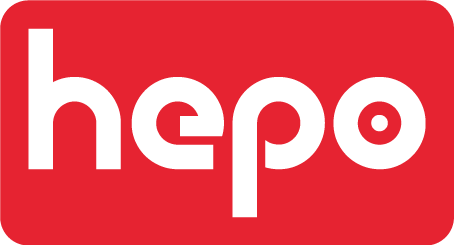Agenda and Schedule
Management
Overview
In today’s
fast-paced, connected world, continuous communication and collaboration are
vital for enterprise success. The Agenda and Schedule Management module in HEPO
is designed to streamline tasks, activities, and project timelines, embodying
HEPO’s commitment to a cohesive and collaborative work environment. This module
acknowledges the importance of time in driving productivity, ensuring that
users, employees, projects, and tasks move forward efficiently and effectively.
It also supports adaptability in a dynamic business landscape, facilitating
change management with flexibility to meet evolving needs.
Key Features
Unified Calendar
Management
Details:
Manages calendars across the company, enabling centralized scheduling for
branches, departments, and individuals by displaying tasks, activities, and
assignments in one unified view.
Benefit:
Centralizes all scheduling information, enhancing visibility and coordination
across the organization, ensuring that tasks, events, and responsibilities are
clearly communicated to foster seamless collaboration.
Multiple Views
Details:
Offers daily, weekly, and monthly calendar views to accommodate diverse
planning needs.
Benefit:
Provides flexibility in viewing and managing schedules, allowing users to
effectively plan and adjust their activities according to their preferences and
project timelines.
Task and Event Integration
Details:
Integrates tasks, activities, and assignments into the calendar, linking them
with projects and teams to ensure alignment with broader organizational goals.
Benefit:
Ensures that all work is interconnected and aligned with project objectives,
promoting efficient division of labor, shared accountability, and teamwork
across departments.
Real-Time Updates and
Notifications
Details:
Delivers real-time updates and notifications for schedule changes, ensuring
that all stakeholders stay informed and on track.
Benefit:
Keeps everyone connected and minimizes missed deadlines, enhancing transparency
and responsiveness in dynamic work environments.
Technical Integration and
Mobility
Seamless
ERP Integration:
Integrates with ERP systems to maintain data consistency, ensuring that
scheduling aligns with operational requirements.
Scalable
Architecture:
Adapts to new tasks, events, and schedules as the organization grows,
maintaining efficiency in managing larger or more complex workflows.
Mobile
Accessibility:
Allows employees to access and manage schedules on mobile devices, supporting
real-time updates and flexibility for remote or hybrid work.
Use Case Scenarios
Project
Management:
Provides an organized agenda for managing project timelines, ensuring that
tasks, milestones, and dependencies are tracked and completed on time.
Team
Collaboration:
Enhances collaboration by giving all team members a clear view of
responsibilities and deadlines, ensuring aligned efforts and coordinated
teamwork.
Event
Planning: Manages
company events, meetings, and training sessions, ensuring smooth and efficient
planning and execution.
Potential Benefits
Enhanced
Communication:
Centralized scheduling information improves communication across the
organization, minimizing misunderstandings and increasing clarity.
Improved
Collaboration:
Integrated task and event management fosters teamwork and ensures alignment
across projects and goals.
Operational
Efficiency:
Real-time updates and notifications keep everyone informed and on schedule,
enhancing productivity.
Corporate
Integrity: Accurate
and transparent scheduling practices foster accountability and build trust
within the organization.
Corporate
Dignity: A
well-structured schedule promotes professionalism and organization, enhancing
employee satisfaction and work-life balance.
Corporate
Gravitas: Reliable
schedule management demonstrates HEPO’s commitment to excellence, reinforcing a
culture of timely, quality-focused operations.
Target Audience
CXOs:
Benefit from a comprehensive, centralized view of all organizational
activities, supporting strategic planning and effective oversight.
IT
Directors and Managers: Value the seamless integration and flexibility of
schedule management, ensuring data consistency across systems.
HR Leaders:
Gain insights into employee availability and task allocations, supporting
effective resource planning and performance management.
